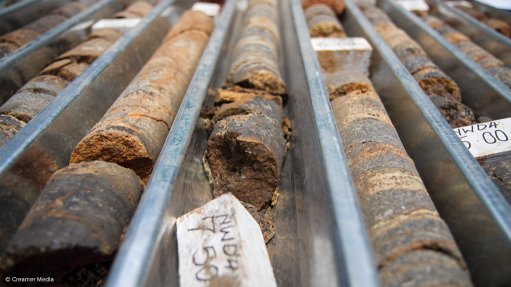
South Africa urged to increase exploration to take advantage of critical minerals opportunity
Amid renewed calls for a functional online mining cadastre to help turn around South Africa’s declining exploration performance, the Department of Mineral Resources and Energy (DMRE) reports that a preferred bidder has been identified and the proposed solution is currently being audited by the State Information Technology Agency (SITA).
Addressing the inaugural African Critical Minerals Summit in Sandton, Minerals Council president Nolitha Fakude underlined the importance of the cadastre in supporting the exploration required for South Africa to play a role in the supply of those minerals that were increasingly in demand for both the energy transition and a range of high-tech applications.
South Africa and Africa hold significant reserves of critical minerals such as cobalt, copper, manganese, platinum group metals, vanadium and lithium.
Noting that South Africa’s share of global exploration spend had fallen from about 5% in 2002 to less than a percent, Fakude called for the underlying causes of the decline to be addressed, as "unlocking exploration is a game changer".
It highlighted the importance of a “functional, transparent, off-the-shelf” cadastral solution that was loaded with geological maps and could be deployed in such a way as to reduce human intervention and possible corruption, she added.
“South Africa is lagging the world in the digital management of its mineral resources, and it is urgent that we have a proven system as soon as possible.”
Speaking on the side-lines of the summit, director-general Jacob Mbele confirmed that the department had selected a preferred bidder and that the SITA audit could be completed by late September or by early October.
While no capital investment value was provided, the SITA audit implies that it is material, as such audits are triggered only for larger information technology investments by government departments.
Mbele said the roll-out of the cadastre would follow the signing of the contract but said the nature and timing of the roll-out was still to be finalised.
In his address to the summit, Mantashe reported that South Africa was at an advanced stage of developing a critical minerals strategy, which would seek to help the country industrialise and support its just energy transition to a low-carbon future.
Nevertheless, he argued that South Africa and Africa needed to develop their own definition of critical minerals rather than relying on definitions that had been developed elsewhere and even suggested that coal should be included on Africa’s list of critical minerals given its importance to energy security.
Mantashe also urged Africa to develop a united critical minerals strategy “to ensure that it does not repeat the mistakes of the past, as it was done with the pit-to-port approach to mining traditional minerals”.
“We hope and believe this platform will take us a step closer to a continental agreement and recommit to the African Mining Vision of a ‘transparent, equitable and optimal exploitation of mineral resources to underpin broad-based sustainable growth and socio-economic development’.”